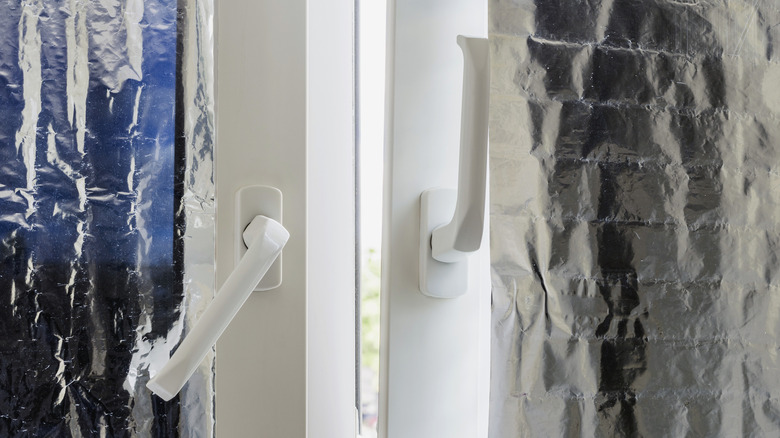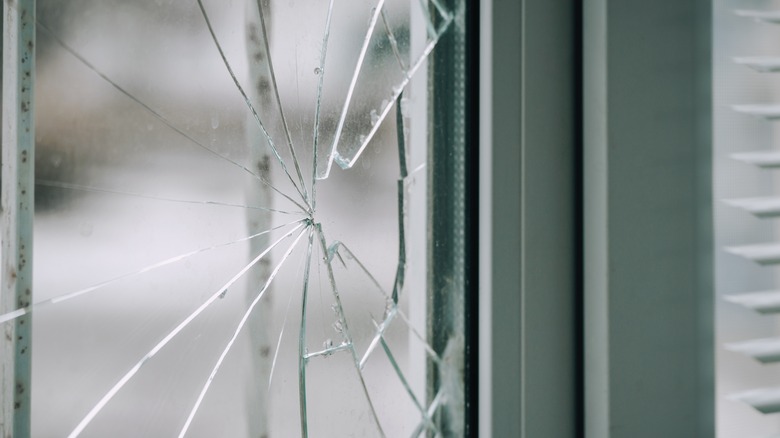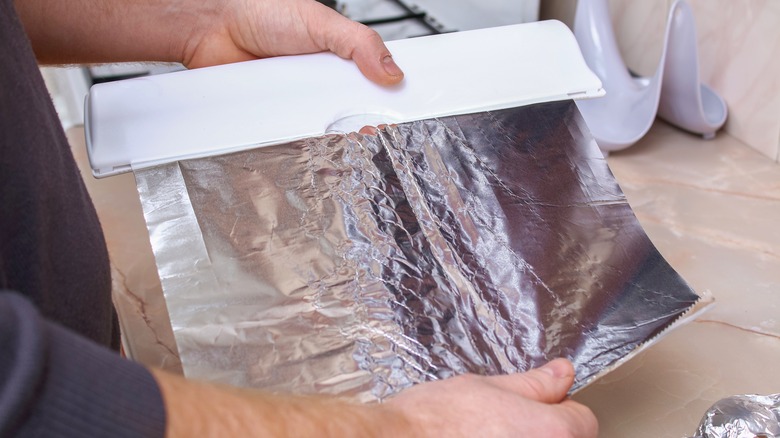Using Aluminum Foil On Windows To Cool Your Home Has A Big Hidden Risk
With rising temperatures nearly everywhere, many homeowners may want to find inexpensive ways to keep their home cooler, as running the air conditioner all the time can come with a hefty electricity bill, especially if you live in areas that frequently get temperatures in the high 90s. And while social media is full of tips that can help you beat the heat and reduce energy costs, however, not every tip is a slam dunk. One popular tip is putting aluminum foil on your windows, but using this technique can come with a big hidden risk: you might void your window warranty.
When you purchase new windows from a window company, they come with a warranty. The warranty length varies by company and product, however, they often include guidelines on proper use and maintenance of the windows. Failure to follow these instructions can void it, which means you will be out the cost of replacing your windows if they get damaged within their warranty period. There's one crucial reason why window manufacturers void warranties over foil.
Why does aluminum foil on windows void your warranty?
Manufacturers issue guidelines on the use and maintenance of your purchases to ensure longevity, either with a lifetime warranty or limited lifetime warranty. The warranty is a legal promise the company will cover replacement or repair only if certain conditions apply, i.e, the window breaks despite proper use. If you use a product outside what the window company permits within its documentation, it's typically considered an "aftermarket" product. Companies like PGT Windows and Doors expressly forbid use of aftermarket products, advising the limited warranty will be "null and void" as this alters the product.
It's common for window manufacturers to warn customers against using tin foil, window film, or other unapproved coatings on their windows. Why? Because it can damage your glass. Using aluminum foil on windows can overheat the glass, as aluminum reflects heat. The temperature variance throughout the glass can cause thermal stress. Too much thermal stress and your windows can crack, turning that once-bargain window hack into a pricey mess. You should also avoid putting foil on your windows if you rent your home or live within a homeowners' association (HOA). Even if you can't find any clause in your warranty against using foil on the windows, the practice might go against your lease or the HOA guidelines. If you must try lining your windows with aluminum foil, there are better ways to do it.
Using foil safely in your windows
While applying aluminum foil directly to your window glass is a no-go, there is a better way to cover your windows with foil that won't stress your glass or void your warranty. For instance, you can use drapes and shades for a cooler room, then cover a piece of cardboard with tin foil, placing the cardboard in between the drapes to help keep heat out of your home. The cardboard will help insulate your space from the hot temperatures, while the foil reflects the outside radiant energy.
Foil can handle temperatures up to 1200 degrees Fahrenheit, so you don't have to worry about it catching fire. This method also means you won't need to worry about sticky residue or trying to remove it, unlike when you coat your windows with stick-on adhesives or directly-applied foil. When you're done with this DIY heat reflector, just recycle the pieces.


